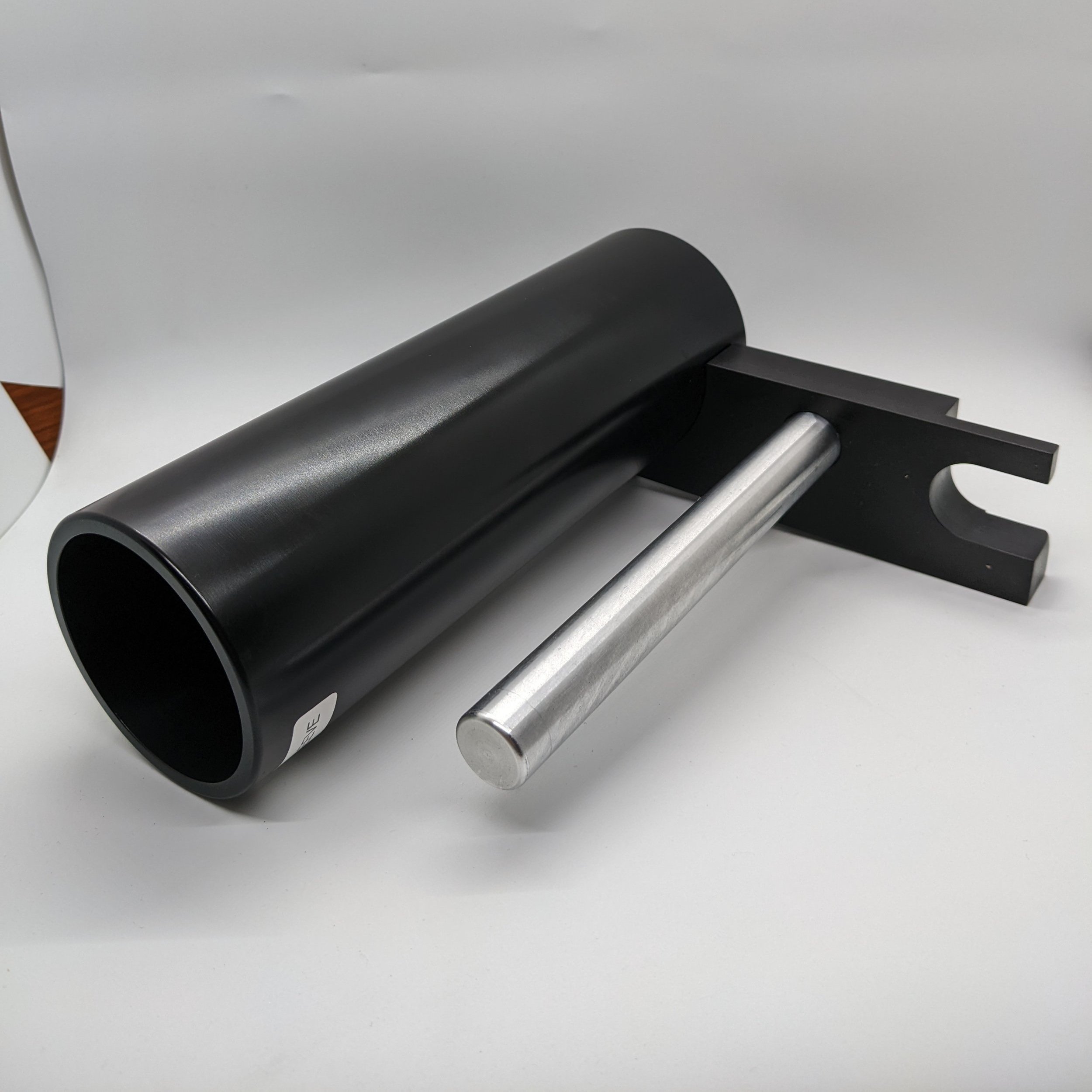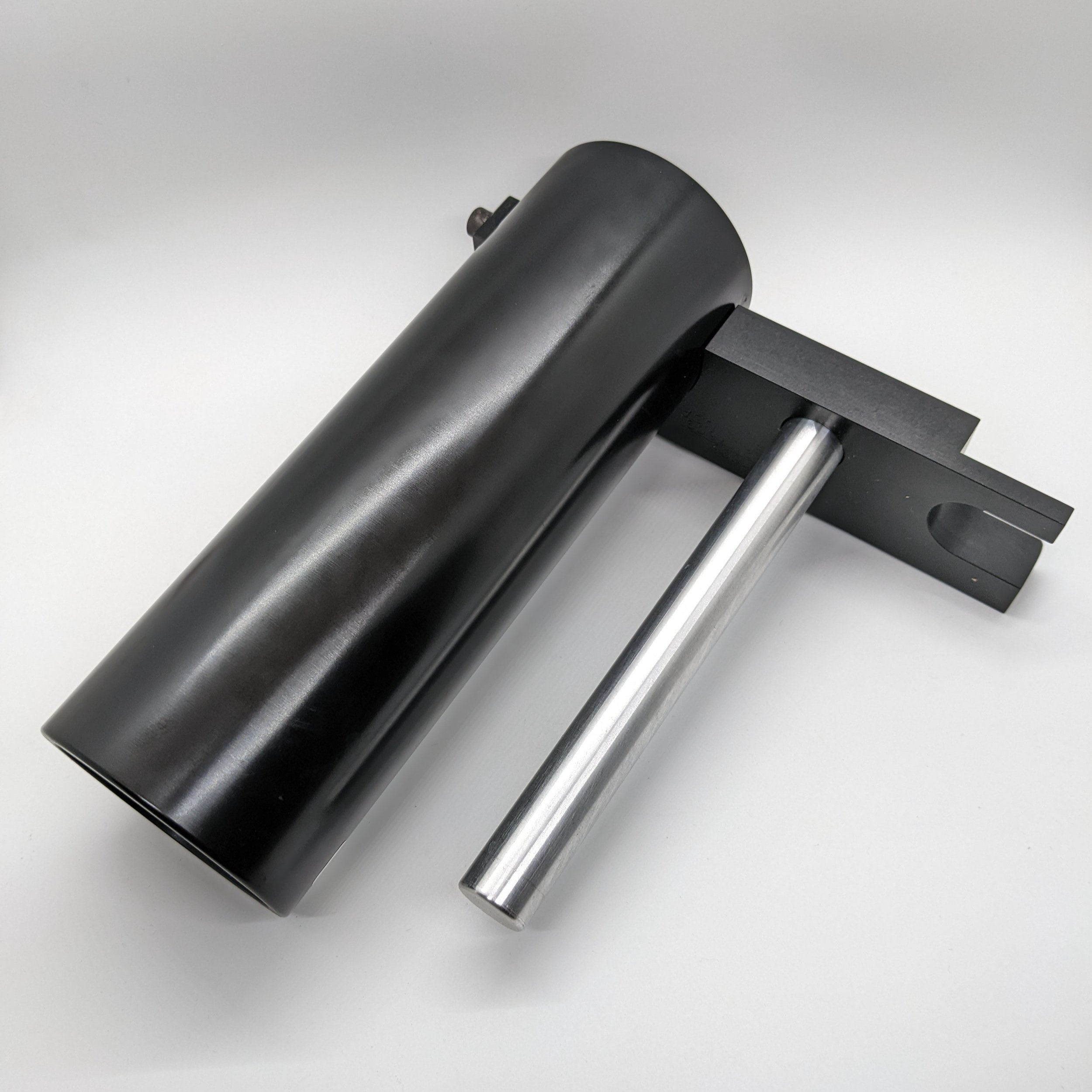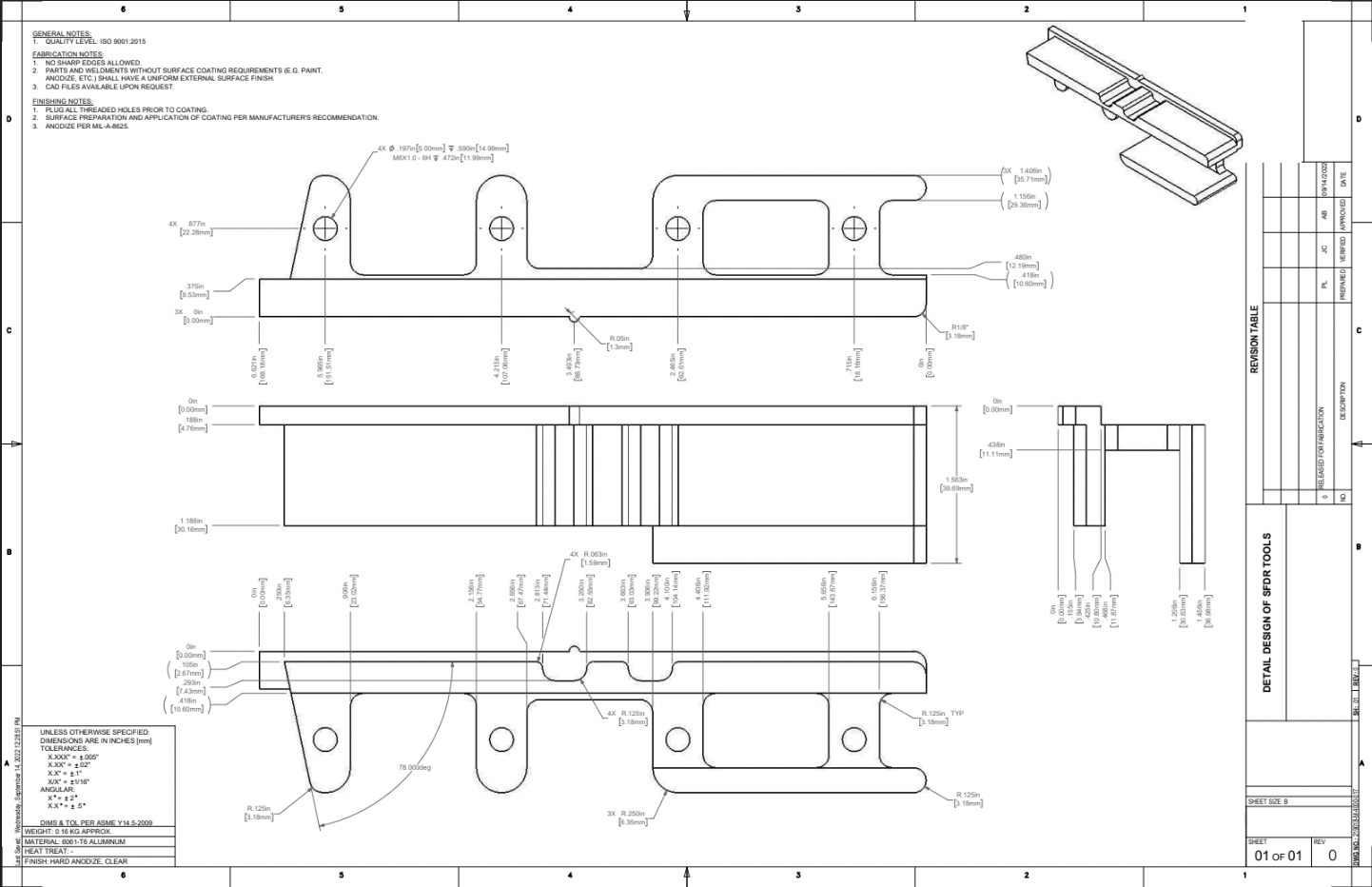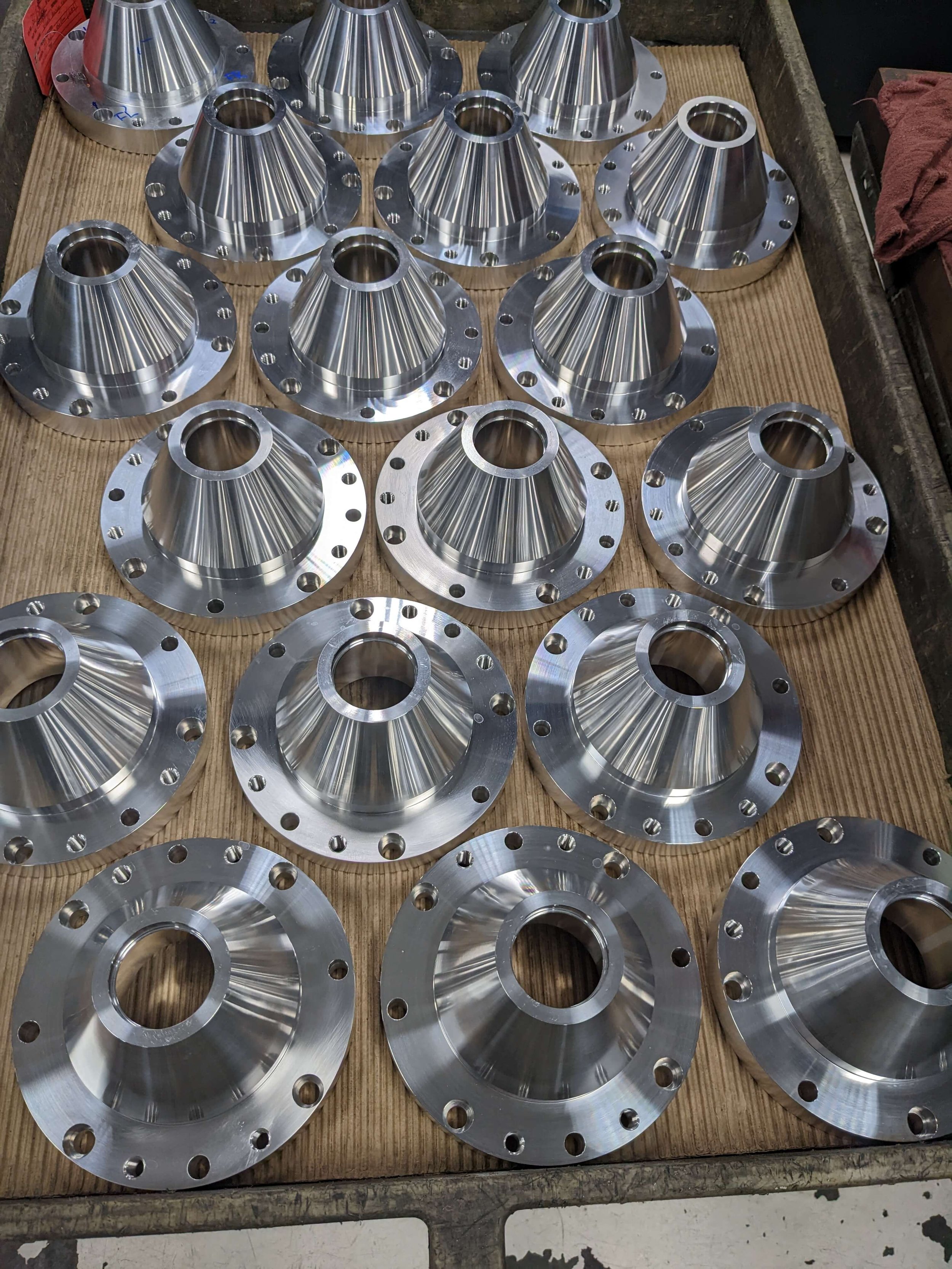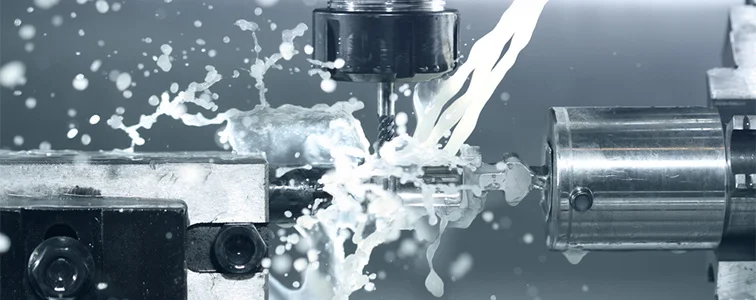
BLOG
How Our Turnkey Assembly Services Benefit You
When you need an assembly, you have a couple of standard options:
Source the parts from multiple precision machine shops, and build your assembly in-house.
Source all the parts from one precision machining partner and have them build your assembly for you.
Last updated April 2025
When you need an assembly, you have a couple of standard options:
Source the parts from multiple precision machine partners, and build your assembly in-house.
Source all the parts from one CNC machine shop and have them build your assembly for you.
Buyers often choose option #1 because they assume it’s the most cost-effective solution. Maybe they source the complex parts from one shop and find a less expensive shop to machine the simpler parts so that they can secure the lowest total cost per part. Then they can have their own people assemble the parts in-house to save even more money—or so they think.
As a precision machine shop that has worked with many customers over the years, we have a different perspective on assemblies. We know the risks involved with sourcing assembly parts from more than one shop and that relying on a single shop for turnkey assembly services often saves customers time and money in the long run.
At Focused on Machining, we can:
Machine all the necessary parts for your assembly
Purchase and install hardware components
Rapidly build your assembly in our dedicated hardware assembly station
Ship it to you in perfect working condition
Guarantee full traceability on all of our hardware
Let’s explore some benefits of choosing us as your precision machining partner for completed assemblies.
Proactive Fit, Form, and Function Testing
Sourcing assembly parts from the same precision machine shop is especially important when parts require tight tolerance machining. For instance, if Part A fits into Part B, it’s possible that both parts could be machined to specifications but still not fit together in the final assembly.
If you source those parts from different shops, you won’t be aware of this potential problem until you receive the parts at your facility and can’t get them to fit. Now you’re going to lose time and money having the parts redone.
When you entrust one precision machining partner with your entire complex assembly, that shop can conduct fit, form, and function tests as they go, proactively fixing any issues to ensure that you receive a functioning assembly.
Hardware Purchasing and Installation
Machined parts aren’t the only factors to consider when building an assembly. There are also hardware components that must fit perfectly. A poor hardware fit or installation can result in a damaged part that could take weeks to get fixed. Fortunately, a full-service precision machine shop like Focused on Machining can purchase and install hardware for you.
Rivets
Rivet installation demands specialized expertise and equipment. With our advanced hardware assembly station, we’re equipped to handle high-volume rivet projects efficiently. Our tooling allows us to install large quantities of rivets quickly, which is particularly ideal for many aerospace machining projects.
Heli-Coils®
It’s easy to damage a threaded hole when trying to install a Heli-Coil. If that damage occurs at your facility, it could take weeks to get the hole fixed. However, if it occurs in our precision machine shop, we simply retap the hole, reform the threads, and properly install the Heli-Coil. In addition, our assembly station allows us to install Heli-Coils in seconds, while operations without the proper tooling may require five or even ten minutes per Heli-Coil.
Adhesives and Sealants
Some of our customers request that the inserts installed into their parts are sealed. In these cases, we can buy the adhesives or sealants, apply them properly, and install the hardware.
Trust Our Precision Machine Shop for Turnkey Assembly Services
Hardware purchasing and assembly require a trusted partner with rigorous quality control standards. As an AS9100 machine shop, we maintain complete traceability for all of our hardware components, sourced exclusively from certified suppliers.
When you trust Focused on Machining to provide turnkey assembly services, you significantly reduce the potentially costly risks associated with sourcing assembly components from more than one shop. You also free up your internal employees from having to build assemblies so that they can direct their labor elsewhere.
Still skeptical that you’ll save time and money with Focused on Machining’s assembly services? Let’s talk about your project. If you have an assembly you’d like to discuss, reach out, and we’ll let you know what we can do for you at our Colorado machine shop.
Material Spotlight: Copper Machining Services
Known for its high ductility and excellent electrical and thermal conductivity, copper is a popular material for applications ranging from rocket parts to electrical components.
Known for its high ductility and excellent electrical and thermal conductivity, copper is a popular material for applications ranging from rocket parts to electrical components.
However, many precision machine shops avoid working with this material. Copper is exceptionally soft, which creates challenges that make it difficult to machine:
Copper is hard to hold onto and can pull out of the workholding easily.
Copper tends to gum up and stick to cutting tools, so special coated tooling is required to machine this material effectively.
Fortunately, Focused on Machining never shies away from machining challenging materials. As demand for copper machining services increases, you can trust our aerospace machine shop to get the job done.
Copper: A Highly Conductive Material
Copper strikes a good balance between malleability and strength and possesses high corrosion resistance. But the property most sought after is its high electrical and thermal conductivity. In fact, copper is one of the most electrically and thermally conductive metals on the planet, second only to silver.
Capable of drawing heat away from other surfaces, copper is a great material for parts that will be housed near parts that generate heat. Many of our customers seek copper machining services for parts used in rocket builds—particularly engine components.
Grades of copper
Copper is available in various grades that fall under six categories: coppers (i.e., commercially pure coppers), dilute copper alloys, brasses, bronzes, copper-nickel alloys, and nickel-silver alloys. We commonly work with copper 101 and copper 110.
Copper 101 has no oxygen, making it highly electrically and thermally conductive and immune to hydrogen embrittlement at high temperatures.
Copper 110 has high electrical and thermal conductivity, good corrosion resistance, and is compatible with hot and cold working processes.
Why Choose Focused on Machining for Copper Machining Services
Focused on Machining has overcome the challenges associated with copper machining to provide superior copper machining services.
The right workholding
To prevent workholding issues, we use jaws designed to bite into the material. In fact, when quoting copper parts, we add extra material so we can use these jaws. As a result, customers get higher-quality parts.
The right tooling
Our commitment to mastering challenging materials yields excellent outcomes for our customers. Through our own trial and error, we’ve learned the best tooling, tooling coatings, and machine settings to use when machining copper parts.
The right suppliers
Because copper is a rare earth metal, supply can be limited. Fortunately, we have a wide network of material suppliers and excel at sourcing copper on behalf of our customers.
While it’s difficult for any shop to achieve precision tolerances when machining copper, we consistently hold standard tolerances of +/- 0.005” for copper parts. We are also capable of achieving high surface finishes, which is necessary for copper port parts requiring clean, flat surfaces for sealing. And if you need finishing services for your copper parts, we can coordinate options like electroless nickel plating and gold plating.
Request a Quote from Our Aerospace Machine Shop
When requesting a quote for copper machining services, we recommend planning ahead to account for the extra time that may be required to source your material. Due to sourcing challenges, it could take a few days for us to find the material you requested and a few additional days for us to receive it.
Keep in mind that not all grades of copper are readily available. Talk to us about your project, and we’ll gladly help you find the exact material you want or a comparable alternative.
Why 3D Models Are Important in Precision Machining
When requesting a quote for precision machining services, it’s in your best interest to include a 3D model in addition to a blueprint. Both documents combined tell the complete story about a part, ensuring that customers get exactly what they need quickly and cost-effectively.
When requesting a quote for precision machining services, it’s in your best interest to include a 3D model in addition to a blueprint.
Both documents combined tell the complete story about a part, ensuring that customers get exactly what they need quickly and cost-effectively. Let’s explore why models are so crucial in precision machining.
Models Provide Critical Context to Ensure Part Accuracy
A blueprint provides essential details about a part’s features and each feature’s precise specifications. A model provides additional context that helps to clarify interpretive statements on the blueprint.
For example, an engineer might leave a note in the blueprint to “break all sharp edges.” However, the machinist’s interpretation of an edge break may differ slightly from the engineer’s. As a result, the engineer might not get precisely what they wanted.
In contrast, programming edge breaks into the model eliminates guesswork, giving machinists a clear 3D visual to add context to the specification from the blueprint.
3D Models Streamline Manufacturing to Improve Lead Times
Providing precision machine shops with a model in addition to a blueprint may feel needlessly cumbersome. But it actually streamlines manufacturing significantly, which is vital to many prototype machining customers seeking quick-turn manufacturing services.
Quick quoting
3D models empower us to turn around fast quotes using our digital quoting software. The software analyzes the model and automatically tells us important information about a part so that we can provide an accurate quote and get your project moving.
Simple programming
Our CNC machines and CMM inspection software use models to achieve auto-programming. For example, when it’s time to program a machine for a manufacturing operation, we can upload the model, click the features, add the tool paths, and get the operation started quickly.
Models Save Customers Money
We don’t machine parts without a model at Focused on Machining, so when a customer can’t provide a model, we need to create one in-house.
In these cases, we charge for our engineering time, which includes going back and forth with the customer over the course of a few days to make sure we’re interpreting the information on the blueprint accurately.
Our Advice: Always Include a 3D Model
For these reasons, we always encourage customers to provide models when requesting a quote for our precision machining services. We’re even happy to connect you with a freelance engineer who will develop a model for you at a fair rate!
We realize that some buyers have difficulty convincing engineers to grant them access to models. If you’re in this situation, it’s worth having a conversation with your engineering team. Be clear about how the absence of a model can negatively impact cost, lead time, and even quality.
Ready to get your project started? Request a quote from Focused on Machining—and don’t forget to include a 3D model if possible!
Your One-Stop Precision Machine Shop for Prototyping and Production
We’ve made a name for ourselves here in Denver, Colorado, as a reliable prototype machine shop serving industries including aerospace, defense, and medical. However, what many of our customers don’t know is that we also do low and even high-volume production work.
We’ve made a name for ourselves here in Denver, Colorado, as a reliable prototype machine shop serving industries including aerospace, defense, and medical. However, what many of our customers don’t know is that we also do low and even high-volume production work.
While precision machine shops often choose to specialize in small or large-quantity orders (instead of both), we know that many of our customers can benefit from partnering with the same shop for prototype machining all the way through to high-volume production manufacturing. And we want to be that shop.
Why Use a Precision Machine Shop for Prototyping and Production?
Here are some of the top advantages of choosing Focused on Machining as your one-stop shop for prototyping and production.
Unmatched efficiency
When you’ve already gone through prototype machining with one shop and choose to take your production order elsewhere, you’ll inevitably have people who have never made your specific part before trying to figure out how to do it.
Your prototype machining partner already has the answers.
Having worked out all the complexities during prototyping, we won’t have to take the time to learn your part. Even better—we’ll have all the fixturing in-house and can get your job programmed and set up much faster than a shop doing it for the first time.
Ultimately, we can move forward with incredible efficiency—and we pass that benefit on to you in the form of time and cost savings.
Consistent quality
Every precision machine shop has their own definition of quality. While many shops can build your part to print, you may notice small but obvious differences in aesthetics and functionality from one shop to another.
If you’re already happy with the quality we have provided you in a prototyping or low-volume capacity, it’s in your best interest to stick with us for higher-volume production.
Other shops might quote your project cheaper, but there’s no guarantee that you’ll receive the same level of quality. Let us know your price target, and we’ll do what we can to work something out.
Vendor consolidation
Starting anew with a vendor who has never worked on your part before can be a big logistical lift. By partnering with the same shop for prototyping and production, you have fewer details to iron out.
And that’s not the only way you’ll reap the benefits of vendor consolidation when you work with Focused on Machining. Part of being a true one-stop precision machine shop means project managing all secondary and outside processes for our customers, including plating, hardware installation, minor assemblies, and more.
We’ll coordinate every aspect of your project, from prototyping through production.
Low and High-Volume Manufacturing at Focused on Machining
From low-volume orders of 20-40 parts to mid-volume orders of 50-1,000 parts to high-volume orders of 1,000+ parts, Focused on Machining can handle your production needs. We can even manufacture orders in the 5,000-10,000 range. For orders larger than that, we’ll gladly connect you with another shop in the area we know and trust.
Precision Machining Materials in Short Supply? Here’s What to Do
Let’s go ahead and address the elephant in the machine shop: material sourcing in the post-COVID world is hard, and there’s no telling when things will return to “normal.” Want an example? We recently got an order on a Thursday, sent the PO to our material supplier on a Friday, and found out that the material they had quoted us just days ago was gone.
Let’s go ahead and address the elephant in the machine shop: material sourcing in the post-COVID world is hard, and there’s no telling when things will return to “normal.”
Want an example? We recently got an order on a Thursday, sent the PO to our material supplier on a Friday, and found out that the material they had quoted us just days ago was gone. The next available material was 50% more expensive and would take 22 weeks to come in—up from the initial seven business days we had anticipated.
You’ll hear these horror stories from precision machine shops everywhere. Materials are in short supply, and customers who don’t jump immediately risk facing absurdly long lead times.
This isn’t the first time materials have been difficult to source, and it won’t be the last time. So let’s take a look at some options for overcoming this challenge.
The Material You Need Is in Short Supply. . . Now What?
If the material you need is in short supply and you have some flexibility, here is what we recommend:
1. Choose a different material
While switching from one metal to another isn’t always a viable option, one swap to consider is plastic → aluminum. There’s a standard misconception that plastic is cheap, easy to source, and simple to machine. However, it’s often cheaper and easier to upgrade to aluminum.
Most of the resin for plastic comes from overseas, making plastic supply chains susceptible to volatility. If you need a 5” piece of plastic sheet and it’s unavailable, consider aluminum as an alternative. Aluminum is consistently easy to procure and is lightweight like plastic but even stronger.
2. Choose a different temper of the same material
When changing to an entirely new material isn’t feasible, another option is to use a different temper of your desired material. For example, we recently had a customer request a thin plate of 6061-T6. The thinnest available right now is 0.25”, which is thicker than they wanted.
We suggested that they use T651 instead, knowing that the properties are similar and that we could easily procure a plate of T651 in the appropriate gauge.
We often recommend different tempers of stainless steel, too. 17-4 stainless steel, for instance, has multiple heat treated variations (e.g., H1150, H1025, H900). Recently, a customer called out H1050, and it wasn’t available. We presented two choices: 1) we could buy standard 17-4 and send it to our heat treating vendor or 2) use a readily available H900 and save them time and money.
3. Choose a different grade of the same material
A material like aluminum comes in so many different grades that finding comparable alternatives to a specific grade is relatively easy. For instance, 6061 aluminum—the most popular grade in aerospace machining—can be a good substitute for the harder-to-find 7050. If you want to stick to the 7000s and 7050 is unavailable, we might recommend 7075.
If Flexibility Isn’t an Option, Act Fast!
When you absolutely need a specific material and don’t have any room for flexibility, as is often the case in aerospace machining, be prepared to act fast! With materials in such short supply, precision machine shops are left fighting for the last pieces of materials like A2 tool steel and stainless steel.
Here’s what we advise our customers to do: If you know you’re going to give us your order, let us know as quickly as possible. That way, we can have our supplier reserve the material for us so you don’t miss out on it.
Ready to get your next project started? Request a quote to work with us!
Are Your Finishing Requirements Unnecessarily Complex?
Are your finishing requirements adding unexpected time, cost, and hassle to your precision machining orders?
There are many ways to overengineer a part, and including unnecessarily complex finishing callouts is high on the list. Follow these finishing best practices when designing your next part.
Are your finishing requirements adding unexpected time, cost, and hassle to your precision machining orders?
There are many ways to overengineer a part, and including unnecessarily complex finishing callouts is high on the list. Follow these finishing best practices when designing your next part.
1. Reconsider Hard Anodize for Tight Tolerance Parts
Hard anodizing a tight tolerance part can be risky because the amount of growth added to the part—anywhere from 0.0005” to 0.003” depending on the specific alloy—may be larger than a feature’s allowable tolerance.
Complicating matters further is that most of the tight tolerance features on these parts are holes, which must be plated on both sides. If the hard anodize adds 0.003” buildup on both sides of the hole, that hole has a combined total of 0.006” of shrinkage.
Most precision machine shops don’t want to deal with the risk of receiving parts from the plater that are out of spec, so they’ll typically no-quote these projects.
At Focused on Machining, we won’t no-quote you. But the only way for us to mitigate risk and ensure that these types of parts are made to spec is to send them to a high-end shop halfway across the country that takes four weeks minimum to process parts.
Only a highly experienced plating vendor can control the amount of growth that hard anodize adds to a part. We’ll give the vendor a precise range of permissible buildup to ensure the parts are still in spec post-finishing, and they’ll do what it takes to meet our specifications.
Needless to say, this process can add substantial cost and time to a project, so if you don’t need hard anodize on tight tolerance parts, consider standard anodize instead.
2. Avoid Intricate Masking Requirements
Customers commonly request that specific part features be masked to avoid exposing them to the finishing treatment. The problem is that sometimes, their masking requirements are more complicated than they need to be.
For example, one customer who wanted 60+ parts anodized provided a highly unusual set of instructions: 1) anodize the parts 2) mask multiple features 3) hard anodize just one feature.
We contacted our trusted plating vendor to see what was possible. We could get into the specifics of the lengthy process they outlined, but let’s just say it involved sending the parts back and forth and performing additional machining operations—and even then, the vendor wasn’t 100% certain the approach would be successful. We explained the situation to our customer and ultimately convinced them that hard anodizing the entire part would save them significant time and money.
For a different project, a customer provided masking instructions for a side motor plate that would require masking such a large portion of the part and so many intricate features that most platers would simply turn down the job. (It’s important to remember that masking is a manual process and can be very time-consuming.)
The customer had a compelling reason for their requirements: anodize produces an electrically non-conductive coating, and they needed certain features to maintain conductivity. We discussed the project with our customer and recommended a (less expensive) chemfilm coating instead. Our vendor was able to dip the entire part into the tank (no masking required), achieving the desired benefit of corrosion resistance while maintaining electrical conductivity.
3. Specify Type, Class, and Color of Finish
When requesting a finish for your part, be as specific as possible. If, for instance, you call out passivation, know that there are three different types of passivation, multiple classes within each type, and several different industry standards.
If you don’t specify the precise type and class of passivation you want, you’re leaving the decision entirely up to the vendor, and your parts might not be passivated to your standards. The same goes for processes like anodizing and chemfilm.
Color is another essential consideration—and another area where it pays to be specific. You may think that requesting “green” anodize is sufficient, but one person’s concept of green can differ considerably from someone else’s. You’re best off providing a color code so that you get the color you want.
Keep in mind, too, that when platers attempt to color-match non-standard colors from one lot to the next, inconsistencies can occur. The anodizing process is highly complex, and many variables (e.g., time in the tank, temperature of the tank, cleanliness of the tank) can affect the part's color. If clear anodize is an option, you’ll avoid the headache of dealing with parts that aren’t exactly the right shade.
Why Trust Focused on Machining for Finishing Services?
At Focused on Machining, we’re committed to helping our customers problem-solve finishing challenges by providing strategic recommendations and working with best-in-class vendors.
One such vendor is Magnetic Inspection Laboratory (MIL), a Chicago-based company that provides metal finishing, coatings, and non-destructive testing services. Their experienced staff comprises scientists with an expert understanding of complicated chemical finishing processes.
Before hard anodizing a tight tolerance part, for example, MIL will run tests on a similar size material to dial in their process. They’re one of the only vendors we’ve found who can consistently achieve our specified tolerances for complex orders.
While many precision machine shops will machine extra parts to send to their finishing vendors to ensure that enough parts come back usable, adding to their customers’ overall costs, we are confident that our trusted vendor can get the job done right the first time.
Request a quote to work with Focused on Machining and benefit from our well-vetted network of finishing vendors.


